Introduction
Modesty has been a concern for Christians and for Catholics for many years now. Little wonder, Pope Pius XI in 1930 issued a Decree on Modesty. The Catechism of the Catholic Church has some instructions and guidance on modesty and the Eucharist. Modesty is encouraged among Christians and in all places; however, let's focus on a specific place (Church) and a specific event (the Celebration of the Eucharist).
Eucharist
During the Last Supper with His disciples, Christ instituted this sacrament of the Holy Eucharist and left for us in this sacrament His Real Presence. This is the highest sacrament because, while other sacraments were instituted by Christ, Christ gave us His very self in this sacrament (Matt. 26:26; Mark 14:22-24, Lk. 22:14-23, John 6:54-57). The CCC describes the Eucharist as the sacrament of sacraments (CCC 1330) because the Eucharist is the source as well as the summit of our Christian life.
The celebration of the Eucharist is the reenactment of the Paschal mystery of our Lord Jesus Christ and is the core of our Catholic life (LG 11). In the celebration of the Eucharist, we are closely united with God and the Church in heaven, the Blessed Virgin Mary, St. Joseph, the apostles, and the Saints (LG 50). In the Eucharist, we celebrate the love of God and the mystery of our salvation.
Understanding the sacrament of the Eucharist and the Real Presence of Christ in this sacrament will help us to understand the importance of modesty during the celebration of the Eucharist.
Preparation for the reception of Christ in the Eucharist
The Church emphasizes the importance of preparation for communion both inwardly and outwardly. Though inward preparation is personal and private, outward physical preparation is not. God knows our hearts through and through (Psalm 139), and our conscience, if well-formed, helps us to know whether our hearts are prepared for the reception of Christ in the Eucharist. However, to show respect and reverence for the Eucharist, we need to be modest in body and heart as well. The Catechism of the Catholic Church has this to say: “To prepare for worthy reception of this sacrament, the faithful should observe the fast required in their Church. Bodily demeanor (gestures, clothing) ought to convey the respect, solemnity, and joy of this moment when Christ becomes our guest.” (CCC 1387).
The Catechism is specific on proper gesture and clothing as ways of preparation for the Eucharist. It is therefore a call for us to remember and reemphasize this concern on worthy preparation for the Feast of the Lord, the Eucharistic banquet. God is concerned about our inward (our heart) and outward (our bodies). Thus, both should be adequately prepared for the celebration of the Lord’s Supper.
Location/place
The church is a holy place, dedicated and consecrated for holy rites, liturgical and religious activities. The greatest of all its liturgies is the celebration of the paschal mystery, the core of our Catholic Faith. Being properly dressed for the celebration of this sacrament of our salvation is important.
Pope Benedict XVI emphasized the Church as a sacred location and edifice as he says: “The church building is a concrete sign of the Church Community, formed from the ‘living stones,’ which are the believers, an image so loved by the apostles. St. Peter (2:4–5) and St. Paul (Ephesians 2:20–22), highlight how the ‘cornerstone’ of this spiritual temple is Christ and that, united to him and very compact, we are also called to participate in the building of this living temple.” Advent, Angelus, 10 December 2006, Vatican City.
We do know that there are dress codes for places and events, whether explicit or implicit — for instance, many golf clubs have clearly posted dress codes, and what one might wear to the beach on a summer day is different than what one would wear to a state dinner. We as Christians and Catholics should always be conscious of who we are, who we represent, and who we come to celebrate and dine with in the Eucharistic celebration.
Some biblical references on our body and modesty
Matthew 5:27–28, 1 Tim. 2:9–10 ,Romans 12:1–2, 1 Cor. 6:19
The temple of God, our bodies, should be treated with some respect in the mode of dress, especially when we are in the community of God’s people and during the celebration of the core of our Christian faith, the Eucharist. St. Paul reminds us that we are not our own. We are owned by God, and thus we must be like those owned by God in word, deeds, and actions (inwardly and outwardly).
“Come as you are”
“Come as you are” does not refer to physical appearance but to our inner disposition. With this mindset of “come as you are,” people decide to come as they are, not minding what they are wearing. If you were invited to meet the King of England, what would you wear? If we, as Catholics, believe in the Real Presence of Christ in the Eucharist, then we are coming to meet the true King and ought to dress accordingly.
No doubt, it is your body and in America we have the freedom of dressing how we wish. However, we should remember that our body is the temple of the Holy Spirit (1 Cor. 6:19), and thus, our bodies have a divine definition and relationship. We should also remember that we are in the House of God and there are other people who have come to celebrate the mystery of salvation. It would be good to respect those other people and God in our choices.
Finally, let us remember the words of St. Paul in his letter to the Romans: “We who are strong ought to put up with the failings of the weak and not to please ourselves, let each of us please our neighbor for the good, for building up” (Rom. 15:1). If, by our parameters, we feel that we are strong in faith, we should remember that we have the Christian responsibility of helping to nurture and build the faith in others. Thus, even if it does not matter for you, it matters for others.
Fr. OtitodiliChukwu Vitalis Onyeama, SMMM


